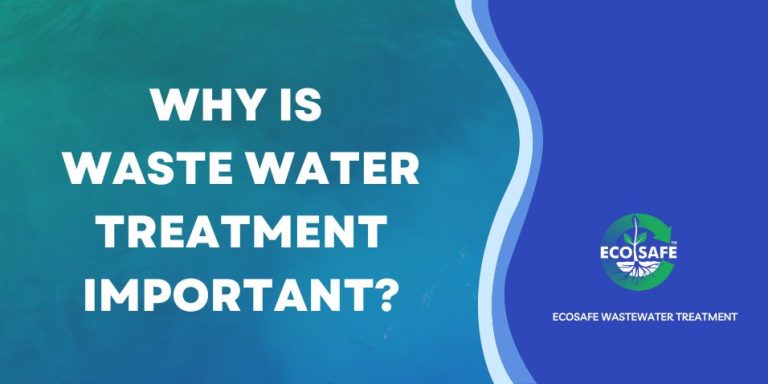Getting My Reclaim Waste To Work
Getting My Reclaim Waste To Work
Blog Article
Facts About Reclaim Waste Uncovered
Table of ContentsThe Main Principles Of Reclaim Waste The Best Guide To Reclaim WasteThe smart Trick of Reclaim Waste That Nobody is DiscussingReclaim Waste - The FactsReclaim Waste Things To Know Before You Get This
Discover the kinds, incidents, and forms of liquid waste. Domestic sewage waste refers to the waste and items from a domestic sewage-disposal tank. This sort of waste is created by people in residences, schools, and other structures. This only consists of sewage-disposal tanks that have a drainpipe area. The appropriate monitoring and disposal of domestic sewer waste require liquid waste to be transferred to a sewage therapy plant where the correct approaches and equipment are related to detoxify and throw away waste.
Industrial waste typically includes possible threats, such as combustible materials or a combination of fluid and solid waste items, and needs a more sophisticated and in-depth disposal procedure. The disposal of business waste normally entails the filtering of waste prior to transportation to guarantee safe and appropriate disposal. Hazardous waste is produced from results and drainage of industrial procedures and production.
This kind of waste can not use the same sewer management transport or procedures as septic or commercial liquids. The hazardous waste monitoring process calls for the inspection and testing of fluid waste prior to it goes through the disposal procedure (liquid waste removal). Runoff waste is the liquid waste that originates from overflow and excess stormwater in very booming areas or cities
Runoff waste can trigger contamination and flooding if not managed correctly. Find out more about sewage system cleaning and waste monitoring. Making sure appropriate waste monitoring can avoid catastrophes and reduce environmental harm. Both individuals in domestic setups and specialists in industrial or production markets can gain from understanding the procedures and guidelines of fluid waste management.
Reclaim Waste Fundamentals Explained
Call PROS Solutions today to discover our waste administration and disposal solutions and the appropriate means to care for the liquid waste you create.
(https://www.kickstarter.com/profile/reclaimwaste1/about)This so-called 'wastewater' is not just an essential source yet, after therapy, will certainly be launched to our land, waterways or the ocean. Made use of water from commodes, showers, bathrooms, kitchen area sinks, laundries and commercial processes is known as wastewater.

water made use of to cool machinery or tidy plant and equipment). Stormwater, a type of wastewater, is runoff that streams from farming and city locations such as roofing systems, parks, yards, roads, paths and seamless gutters into stormwater drains, after rain. Stormwater flows unattended directly to local creeks or rivers, eventually reaching the ocean.
Some Known Incorrect Statements About Reclaim Waste
In Queensland, most wastewater is dealt with at sewage therapy plants. Wastewater is transported from domestic or industrial sites with a system of sewage systems and pump stations, understood as sewage reticulation, to a sewage treatment plant.
The Division of Natural Resources advises regional federal governments regarding managing, operating and preserving sewage systems and therapy plants. In unsewered areas, city governments may call for homeowners to set up private or family sewage therapy systems to treat residential wastewater from bathrooms, kitchen areas, washrooms and laundries. The Department of Natural Resources authorises making use of family systems when they are proven to be efficient.
In some new neighborhoods, therapy of some stormwater to remove clutter, sand and crushed rock has actually started utilizing gross contaminant catches. Wastewater treatment takes place in 4 stages: Gets rid of strong issue.
Wastewater then moves into big tanks where solids resolve and are removed as sludge. Oil and residue are skimmed from the surface. Uses small living microorganisms referred to as micro-organisms to break down and get rid of staying dissolved wastes and great fragments. Micro-organisms and wastes are included in the sludge. Removes nitrogen and phosphorus nutrients that can create algal flowers in our Bonuses rivers and threaten aquatic life.
The 5-Second Trick For Reclaim Waste
Nutrient removal is not available in all sewer therapy plants due to the fact that it calls for costly specialised devices. It is becoming much more usual in Queensland. Clear liquid effluent created after therapy may still have disease-causing micro-organisms. If this effluent is released right into waterways such as rivers or the sea, the micro-organisms will at some point die out.

This typically implies wastewater needs to be treated or impurities eliminated prior to it can be released to waterways. A lot of wastewater moves into the sewage system. Under the Act, local federal governments administer authorizations and licences for eco relevant activities (Periods) entailing wastewater releases that may have a regional impact. The division administers approvals and licences to Periods involving wastewater releases that may have a regional or statewide impact.
Reclaim Waste Things To Know Before You Get This
Monitoring supplies accurate information about water top quality and can confirm that licence conditions are being met. The info gotten through tracking provides the basis for making water quality decisions.
Report this page